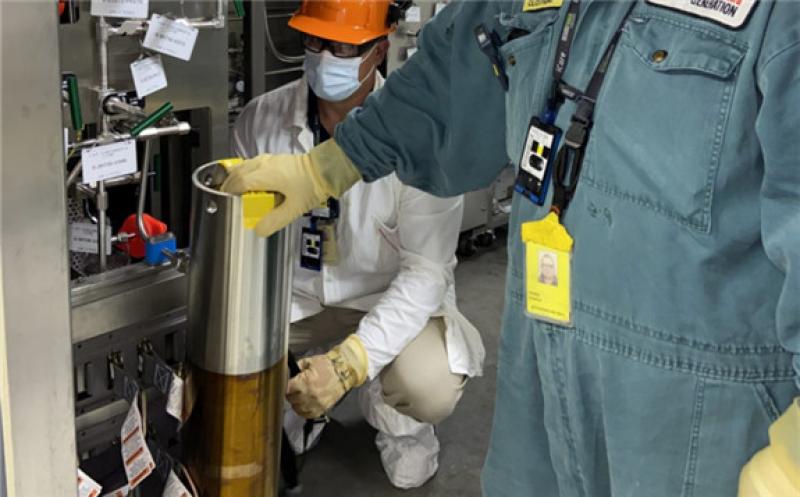Helium-3 as a by-product from Canada’s Darlington Nuclear Generating Station is to be delivered for quantum computing and other applications.

Using a new tool, Laurentis Energy Partners, an energy solution subsidiary of Ontario Power Generation, has started extracting helium-3 from tritium stored at the Darlington nuclear station.
Under a long term agreement, gas management and cryogenics specialist Air Liquide will purify the molecule, then package and distribute it to customers globally. Production is due to start by the end of this year.
Helium-3 is a rare but stable isotope of helium with unique physical properties that make it suitable for use in a range of applications, notably quantum computing with its requirement for an ultracold operating environment close to absolute zero (-273oC). Others include neutron physics, medical imaging and potentially in the future as a fuel for fusion.
The Darlington Nuclear Generating Station, owned by Ontario Power Generation and situated about 100km east of Toronto, claims housing one of the world’s largest reserves of tritium.
Tritium is a by-product of nuclear energy, removed from the heavy water used in the Canadian designed CANDU (Canada Deuterium Uranium) nuclear plant. The tritium is stored in special flask-like containers where it slowly turns into helium-3 and from which, when commissioning is complete, the intention is to extract it with the custom-designed tool developed by Laurentis and partners.
With this advance, Laurentis believes to become the first civilian, non-military source of helium-3.
“By increasing the supply of this rare isotope, we can help save lives, advance high-tech industries and expand the frontiers of science,” says Jason Van Wart, Vice President of Laurentis.
For Air Liquide the venture has become possible following the September 2020 acquisition of the French cryogenic specialist CryoConcept with its deep refrigeration technology able to reach temperatures close to absolute zero.
“This major agreement reinforces our core competencies when it comes to extreme cryogenics and deep tech, and illustrates our ambition to push back the frontiers of science,” says Emilie Mouren-Renouard, Member of the Air Liquide Executive Committee in charge of Innovation, Digital and IT, Intellectual Property and the Global Markets & Technologies World Business Unit.